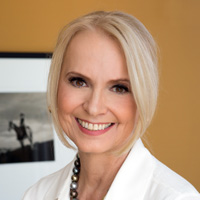Beware of Hidden Costs Lurking in Your Mutual Fund Portfolio!
Some investment fees are obvious, but you may not even be looking for them. Others are much tougher to spot. But it's well worth some detective work.


Profit and prosper with the best of Kiplinger's advice on investing, taxes, retirement, personal finance and much more. Delivered daily. Enter your email in the box and click Sign Me Up.
You are now subscribed
Your newsletter sign-up was successful
Want to add more newsletters?

Delivered daily
Kiplinger Today
Profit and prosper with the best of Kiplinger's advice on investing, taxes, retirement, personal finance and much more delivered daily. Smart money moves start here.

Sent five days a week
Kiplinger A Step Ahead
Get practical help to make better financial decisions in your everyday life, from spending to savings on top deals.

Delivered daily
Kiplinger Closing Bell
Get today's biggest financial and investing headlines delivered to your inbox every day the U.S. stock market is open.

Sent twice a week
Kiplinger Adviser Intel
Financial pros across the country share best practices and fresh tactics to preserve and grow your wealth.

Delivered weekly
Kiplinger Tax Tips
Trim your federal and state tax bills with practical tax-planning and tax-cutting strategies.

Sent twice a week
Kiplinger Retirement Tips
Your twice-a-week guide to planning and enjoying a financially secure and richly rewarding retirement

Sent bimonthly.
Kiplinger Adviser Angle
Insights for advisers, wealth managers and other financial professionals.

Sent twice a week
Kiplinger Investing Weekly
Your twice-a-week roundup of promising stocks, funds, companies and industries you should consider, ones you should avoid, and why.

Sent weekly for six weeks
Kiplinger Invest for Retirement
Your step-by-step six-part series on how to invest for retirement, from devising a successful strategy to exactly which investments to choose.
As an investment professional it pains me to write this: In the world of mutual fund investing, you don’t always get what you pay for. Often, you don’t even know how much you are paying.
When it comes to clothes, meals, hotels, cars and many other products and services, we are accustomed to paying more for higher quality. Unfortunately, that rule of thumb does not apply to investments.
All mutual funds charge fees. There’s nothing wrong with that. Managers need to get paid, and the funds incur costs as part of conducting business.
From just $107.88 $24.99 for Kiplinger Personal Finance
Become a smarter, better informed investor. Subscribe from just $107.88 $24.99, plus get up to 4 Special Issues

Sign up for Kiplinger’s Free Newsletters
Profit and prosper with the best of expert advice on investing, taxes, retirement, personal finance and more - straight to your e-mail.
Profit and prosper with the best of expert advice - straight to your e-mail.
However, some funds are more expensive than others. When new clients come to our firm, they generally own funds with high expense ratios. When I point this out, they sometimes ask if they are paying a higher fee for better performance. Sadly, that is often not the case.
Small increases in fund expense ratios can add up to big dollar differences in your returns over time. For example, let’s look at two funds: a $10,000 investment in a fund with a 2% expense ratio compared with the same $10,000 investment in a fund with a 0.5% expense ratio. If both have gains of 10% in a year, the fund with the higher expense would net $10,800 vs. $10,950 for the fund with lower expenses. That difference compounds over time.
It’s easy to find fund expense ratios on sites like Morningstar or Yahoo Finance. Here is an overview of some of the fees that funds might charge:
Management fees
This goes to the fund's portfolio manager. As of this writing, Superfund Managed Futures Strategy A (SUPRX) has one of the highest management fees in the fund universe at 3.28% according to the fund’s prospectus. LoCorr Dynamic Equity A (LEQAX) had fund expenses at 3.21% as stated in its prospectus. Fund companies can raise or lower the stated expense ratios from year to year, however, they tend to hover around the amounts stated in the prospectus.
Typically, funds that are passively managed charge lower management fees. This is because they track a basket of stocks. Vanguard and Dimensional Fund families have low internal expense ratios. The more expensive actively managed funds have a person or team of people attempting to pick the best investments. Despite the higher fees, they are not always successful at beating their benchmarks.
12b-1 fees
These fees are used to reward intermediaries for promoting a fund. In other words, it’s a commission. Be aware: A fee-only registered investment adviser cannot receive one of these commissions and is not incentivized to sell these products to unwitting clients. An adviser who is not obligated to act as a fiduciary can sell you these products loaded up with extra fees.
In case you were wondering, higher 12b-1 fees do not improve performance. More on fees and performance later. These fees average around 0.13%, so if you purchase $10,000 of a mutual fund with 12b-1 fees, that translates to $13 per /year. This is a yearly charge which can be distributed to the broker who sold the fund.
Redemption fees
To discourage trading, funds can charge a redemption fee to investors who sell shares. Redemption periods have a large range — commonly 30 days to a year — so be sure to understand if and how your fund assesses redemption fees before you buy (and especially before you sell). It’s a percentage of the value of the funds but can be no more than 2% as mandated by the SEC. The fee doesn’t go to the broker. Instead, it flows back into the mutual fund’s assets.
Load
A load is another sales charge that rewards an intermediary for distributing shares of a mutual fund. Loads can be front-end or back-end.
- Front-end loads are typically found in A-share classes. This sales charge occurs when the investor buys the fund, and it can be as high as 5.75% of the total investment! The money is typically passed on to the broker who sold you the fund.
- Back-end loads (aka deferred sales charges) are typically found in B-share classes. This charge occurs when the investor sells the fund and can be as high as 5%! The money goes to the broker selling the investment.
Always ask your adviser if you are paying one of these fees. Or, better yet, look it up yourself.
But wait, there’s more.
Funds with high turnover rates incur a host of “hidden” costs that are less transparent to investors. The two primary hidden costs are transaction fees and tax inefficiencies. Combined, they are the worst offenders in running up fund expenses.
UC Davis professor Roger Edelen and his co-researchers from the University of Virginia analyzed portfolio holdings and transaction data for 1,758 mutual funds from 1995 through 2006. Edelen found that transaction costs, or costs for trading securities within a fund, can be higher than the expense ratio. The fees can vary by asset class. For example, investors in small-cap growth funds pay an average of 3.17% in transaction costs, and large-cap value funds pay 0.84% per year.
Mutual funds are notoriously inefficient when it comes to taxes. Say you bought a mutual fund that currently holds a stock trading at $100 a share. Then the stock drops to $80, and the fund decides to sell that position. You just lost $20 on that holding, which should generate a tax write-off. However, if the mutual fund originally acquired the stock at $50, the fund must pay taxes on those profits. As an investor in the fund, you must share in that tax liability. According to a study by Morningstar, the average cost of mutual fund tax inefficiency is approximately 1.10% per year.
But wait, there’s STILL more.
Believe it or not, the higher the fees, the worse funds perform, according to another study by Morningstar. And that held true across asset classes. Intuitively it makes sense: The higher the fees, the bigger the hurdle the fund must overcome to outperform its competitors.
What about transaction costs and tax inefficiencies? A joint study in 2017 by Sherbrooke University, York University, and the University of Western Ontario examined 2,856 funds over the period from 1991 through 2012. The research revealed that high turnover predicts lower performance and higher volatility.
So, what should you do?
Just because some mutual funds charge exorbitant fees and underperform their benchmarks doesn’t mean you should give up on mutual funds. Several fund families, such as Dimensional Fund Advisors, Vanguard and BlackRock are popular among investors looking for affordable and efficient investments.
A quick and easy way to find information on expenses and hidden costs is the Morningstar website. When you search for a fund, you will see information about its expenses and turnover, in addition to basic data, such as its current price. The expense ratio is straightforward, combining the management fee, 12b-1 fees and other operating costs into one percentage for easy comparison.
More inquisitive investors can also look at turnover. As with expenses, a lower number is better. If the fund has 100% turnover, the fund replaces all its holdings over a 12-month period, which means higher transaction costs and taxes.
When choosing a fund, don’t simply look at past performance. Once you are sure the fund’s strategy aligns with your investment goals, risk tolerance, time horizon and overall asset mix, make sure you understand the fees being charged. Don’t you want more of your hard-earned money staying with you, rather than lining a someone else’s pockets?
Profit and prosper with the best of Kiplinger's advice on investing, taxes, retirement, personal finance and much more. Delivered daily. Enter your email in the box and click Sign Me Up.

I'm the CEO of Better Money Decisions (B$D) and co-author of the blog Better Financial Decisions. As a principal of B$D, I'm excited to continue my long career as an investment professional. Living and working in places as diverse as Saudi Arabia and Budapest, Hungary, has given me a unique perspective on the world of investing. My book, "Bozos, Monsters and Whiz-Bangs: Bad Advice from Financial Advisors and How to Avoid It!" is an insider's guide to finding the right adviser.
-
 Dow Leads in Mixed Session on Amgen Earnings: Stock Market Today
Dow Leads in Mixed Session on Amgen Earnings: Stock Market TodayThe rest of Wall Street struggled as Advanced Micro Devices earnings caused a chip-stock sell-off.
-
 How to Watch the 2026 Winter Olympics Without Overpaying
How to Watch the 2026 Winter Olympics Without OverpayingHere’s how to stream the 2026 Winter Olympics live, including low-cost viewing options, Peacock access and ways to catch your favorite athletes and events from anywhere.
-
 Here’s How to Stream the Super Bowl for Less
Here’s How to Stream the Super Bowl for LessWe'll show you the least expensive ways to stream football's biggest event.
-
 How to Add a Pet Trust to Your Estate Plan: Don't Leave Your Best Friend to Chance
How to Add a Pet Trust to Your Estate Plan: Don't Leave Your Best Friend to ChanceAdding a pet trust to your estate plan can ensure your pets are properly looked after when you're no longer able to care for them. This is how to go about it.
-
 Want to Avoid Leaving Chaos in Your Wake? Don't Leave Behind an Outdated Estate Plan
Want to Avoid Leaving Chaos in Your Wake? Don't Leave Behind an Outdated Estate PlanAn outdated or incomplete estate plan could cause confusion for those handling your affairs at a difficult time. This guide highlights what to update and when.
-
 I'm a Financial Adviser: This Is Why I Became an Advocate for Fee-Only Financial Advice
I'm a Financial Adviser: This Is Why I Became an Advocate for Fee-Only Financial AdviceCan financial advisers who earn commissions on product sales give clients the best advice? For one professional, changing track was the clear choice.
-
 I Met With 100-Plus Advisers to Develop This Road Map for Adopting AI
I Met With 100-Plus Advisers to Develop This Road Map for Adopting AIFor financial advisers eager to embrace AI but unsure where to start, this road map will help you integrate the right tools and safeguards into your work.
-
 The Referral Revolution: How to Grow Your Business With Trust
The Referral Revolution: How to Grow Your Business With TrustYou can attract ideal clients by focusing on value and leveraging your current relationships to create a referral-based practice.
-
 This Is How You Can Land a Job You'll Love
This Is How You Can Land a Job You'll Love"Work How You Are Wired" leads job seekers on a journey of self-discovery that could help them snag the job of their dreams.
-
 65 or Older? Cut Your Tax Bill Before the Clock Runs Out
65 or Older? Cut Your Tax Bill Before the Clock Runs OutThanks to the OBBBA, you may be able to trim your tax bill by as much as $14,000. But you'll need to act soon, as not all of the provisions are permanent.
-
 The Key to a Successful Transition When Selling Your Business: Start the Process Sooner Than You Think You Need To
The Key to a Successful Transition When Selling Your Business: Start the Process Sooner Than You Think You Need ToWay before selling your business, you can align tax strategy, estate planning, family priorities and investment decisions to create flexibility.